COVID-19 and Hypertension Lower Your Extra Risk
Hypertension may more than double the risk of hospitalization after infection with the omicron variant, even among individuals who are fully vaccinated and boosted, according to a new study published in Hypertension. For the study, researchers at the Smidt Heart Institute at Cedars-Sinai analyzed EHRs for 912 people who were fully vaccinated and boosted and had been diagnosed with Covid-19 between Dec. 1, 2021, and April 20, 2022—during the first omicron surge. Overall, 145 patients were hospitalized, and of these patients, 125 had hypertension.
Studies have suggested that people with high blood pressure are more at risk of getting seriously ill with and dying of corona-virus disease 2019 (COVID-19). But some experts say that the people with high blood pressure who’ve gotten the sickest with COVID-19 were older and had other medical conditions, too. Diabetes, obesity and serious heart issues are examples.
Research into the link between high blood pressure and COVID-19 is ongoing. However, people with untreated high blood pressure seem to be more at risk of complications from COVID-19 than those whose high blood pressure is managed with medication. In fact, as you’ll see below, AHA says it’s almost tripling the risk.
So lowering your high blood pressure becomes more vital than ever. I know how scary it is as I have hypertension myself.
We have been told to practice social distancing, proper hand-washing, wearing a face-mask in public, and the like. Yet despite taking these precautions we still remain concerned about getting sick.
To keep you fully informed on the subject, enclosed below the American Heart Association’s latest statement on the subject.
The 4 key takeaways as I see them are:
- 1. Now more than ever keep your blood pressure low.
- 2. Keep a closer tab on your BP. Start using that home BP monitor of yours.
- 3. Do Not Stop your hypertension medications.
- 4. Beware of the OTC meds and natural substances that can increase your high blood pressure.
Let me add that if you are a RESPeRATE owner, feel free to increase your daily usage. As you already know, beyond lowering your blood pressure, it relieves anxiety, stress which plenty of studies say may weaken your immune system.
Because this is so important I have taken this directly from the American Heart Association
According To The Research Who Is At Risk?
Based on what we know today, elderly people with coronary heart disease or high blood pressure may be more susceptible to the corona-virus and more likely to develop more severe symptoms. That means it’s vital to follow guidance about keeping other conditions well controlled and maintaining good health and hygiene.
Data from the outbreak in Wuhan, China[ii], shows a 10.5% death rate among people with COVID-19 who also have cardiovascular disease, 7.3% for those with diabetes, 6.3% for those with respiratory disease, 6% for those with high blood pressure and 5.6% for those with cancer.
Could Hypertension Medication Make People With COVID-19 Sicker?
According to the latest guidance from the American Heart Association, Heart Failure Society of America and the American College of Cardiology, issued March 17,2020:
Do not stop taking prescribed angiotensin converting enzyme inhibitors (ACE-i) or angiotensin receptor blocker (ARB) medications for high blood pressure, heart failure or heart disease.
These medications don’t increase your risk of contracting COVID-19. They are vital to maintaining your blood pressure levels to reduce your risk of heart attack, stroke and worsening heart disease.
If you’re a cardiovascular disease patient with COVID-19, your health care provider should evaluate you before adding or removing treatments. Changes should be based on the latest scientific evidence and shared decision-making.
What The Data Tells Us
So far, the data supporting the connection between blood pressure medications—specifically, angiotensin-converting-enzyme (ACE) inhibitors and angiotensin receptor blockers (ARBs)—and COVID-19 are scant. Yet media coverage of the connection has led patients prescribed the drugs to call their doctors asking if they should stop taking them. In response, several medical associations—including the American College of Cardiology, the American Heart Association, the Heart Failure Society of America, and the European Society of Cardiology—have issued guidelines saying patients should not stop taking the anti-hypertensive drugs because there’s no evidence to support the claim that they cause more-severe SARS-CoV-2 infections.
In support of that recommendation, Ankit Patel, a clinical and research fellow focusing on the kidneys at Brigham and Women’s Hospital in Boston, and his Brigham colleague Ashish Verma dug into the literature to address the confusion and reported March 24 in JAMA that there’s no definitive evidence to suggest ACE inhibitors and ARBs increase the severity of COVID-19. Another team of doctors, writing in the March 30 issue of the New England Journal of Medicine, came to the same conclusion.
Instead of making COVID-19 symptoms worse, some antihypertensive drugs may actually reduce the severity of infections, and could therefore be used to treat the disease, both sets of doctors say. A closer look at the underlying mechanisms of the medications has also buoyed another idea for how to treat COVID-19—give patients the enzyme ACE2 as a decoy to direct SARS-CoV-2 away from their cells. A biotech company developing such an approach using recombinant ACE2 received regulatory approval on (April 2) to start clinical trials on COVID-19 patients.
Over-The-Counter Medications.
Common pain medicines called NSAIDs (e.g., naproxen and ibuprofen) can increase your blood pressure. Decongestants are also known BP-raisers. People with heart concerns should limit or avoid them, especially if their blood pressure is uncontrolled. Drugs such as acetaminophen are less likely to increase blood pressure. People should ask their doctors about OTC medicines.
Some Prescription Medicines
If you are taking medication for mental health, corticosteroids, oral birth control, immunosuppressants and some cancer medications, you should monitor blood pressure to make sure it’s under control.
Alcohol and Caffeine
You should limit both, because too much can raise blood pressure. Caffeine should be capped at three cups per day in general, and most people with high blood pressure should avoid it.
Watch How Mark Lowered His Blood Pressure Naturally. It was 150/100, this morning it was 110/79 Watch Video
Herbs and Food Combinations
“Natural” supplements and home remedies might not be safe. Some herbal supplements, such as licorice, can raise blood pressure.
Connecting with health care providers and pharmacists
Patients should ensure they have enough prescription medications to last for a prolonged period or see if they can get a larger supply than normal. Mail-order systems may be available for people who can’t or don’t want to leave home.
Medications should be taken exactly as prescribed. Decreasing or stopping them could raise blood pressure to dangerous levels. People with concerns should talk to a doctor or pharmacist.
Emergencies Don’t Stop For COVID-19
High blood pressure increases the risk for heart attack and stroke. Certain heart and stroke symptoms require immediate medical intervention, and every second matters. Calling 9-1-1 at the first sign of heart attack, stroke, or cardiac arrest saves lives. Fast access to medical treatment is the No. 1 factor for surviving a cardiovascular event.
COVID-19 and Hypertension Lower Your Extra Risk
Having hypertension puts us at an extra risk. I have suffered from hypertension so I do not want it rebounding. I am ensuring that I am doing what is needed to lower my risk factor if not neutralize it. I am eating healthy meals, drinking plenty of water, ensuring to get proper sleep, and keeping my stress levels low. You and I have a big part to play in our health and the health of our loved ones. Let’s lower our high blood pressure risk together.
If you have high blood pressure, the most important step you can take is to manage it. Follow the treatment plan you’ve created with your doctor. Protecting yourself against the serious health issues that high blood pressure can cause is especially important with COVID-19.
You Can Reach Out
I know this is a lot of information to take in. So if you have any questions at [email protected]. You can also reach through “Live Chat” at www.resperate.com.

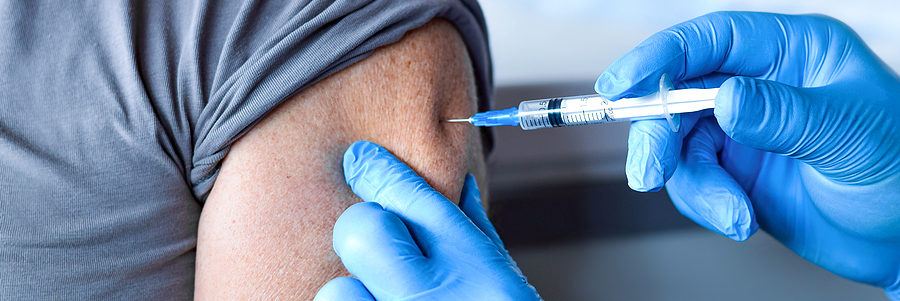

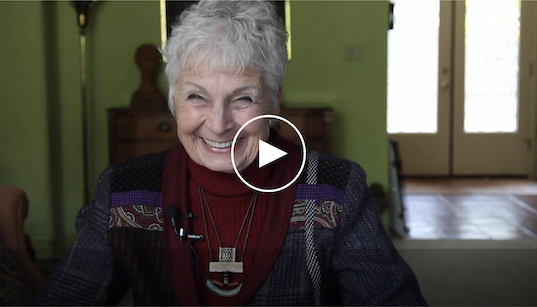

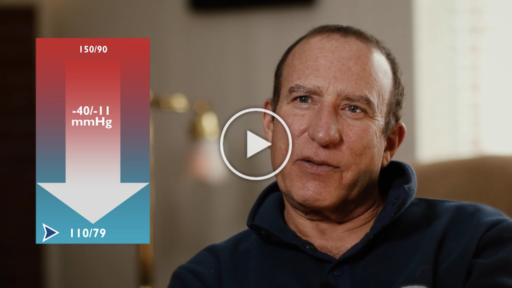
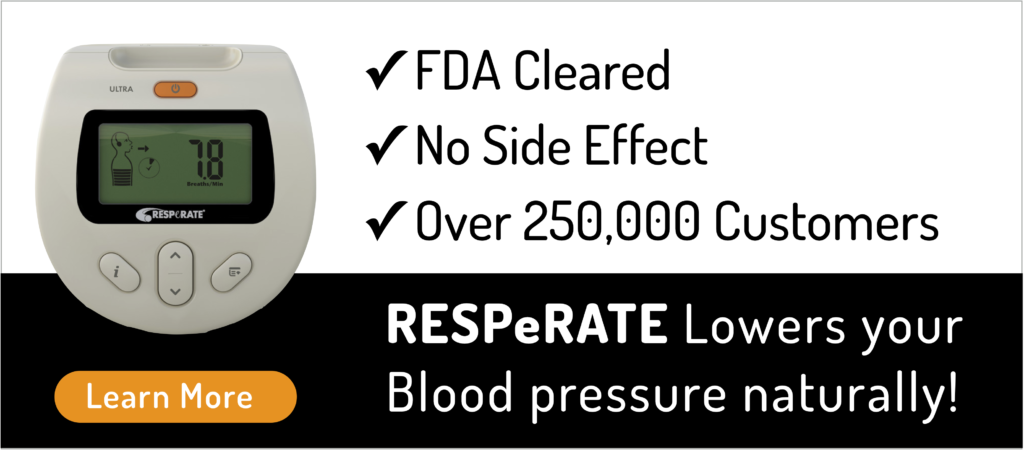
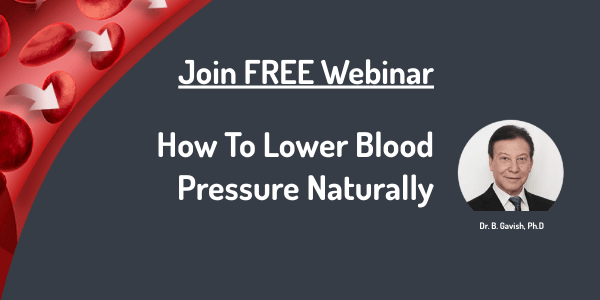


 Download Brochure
Download Brochure